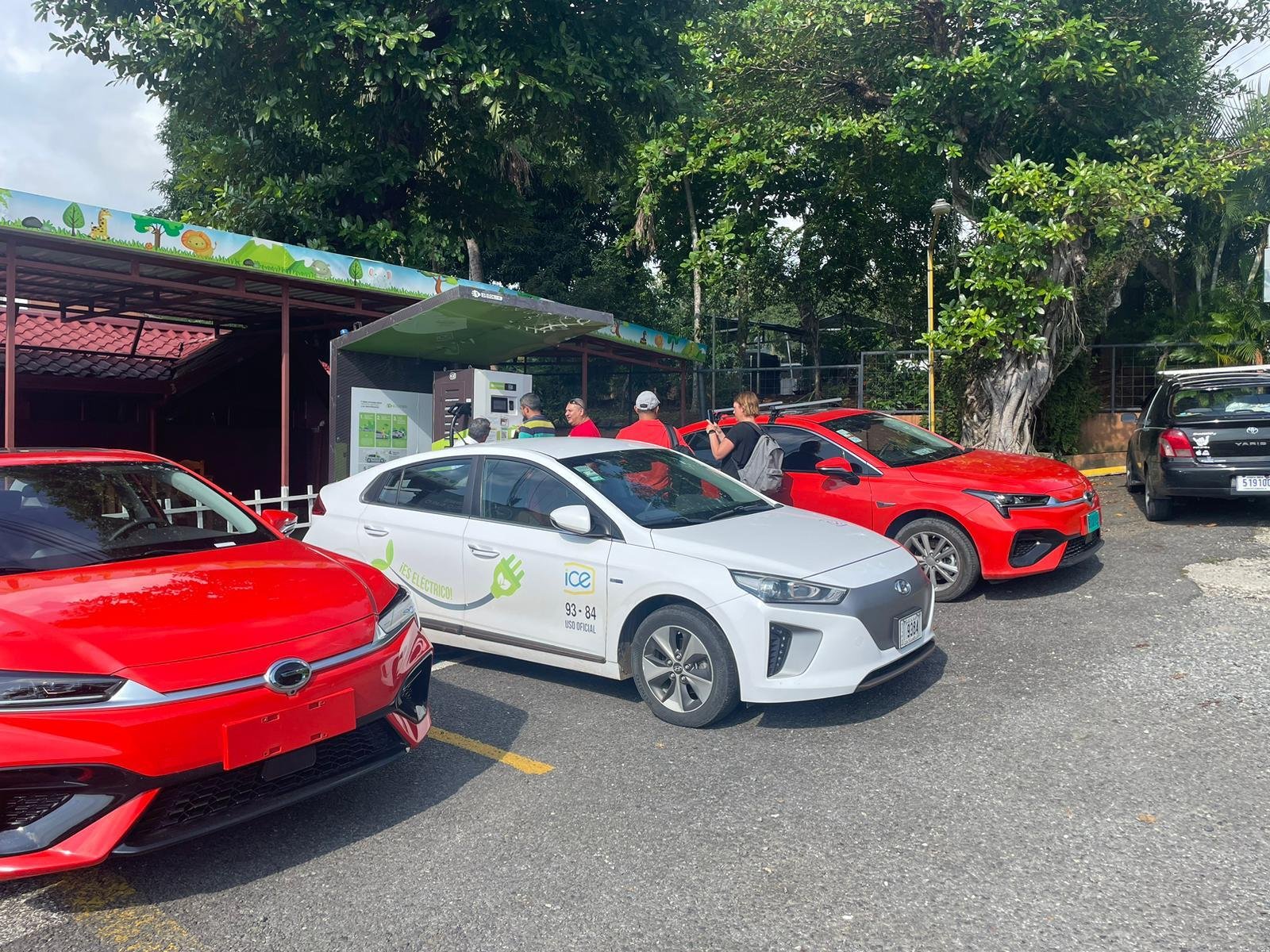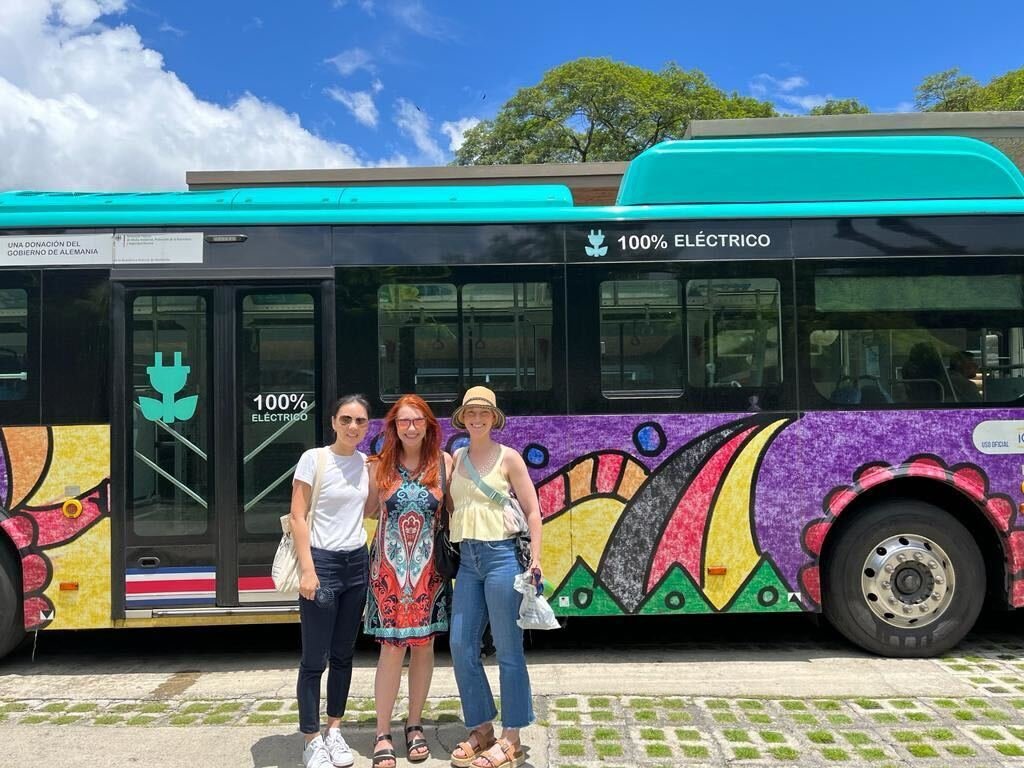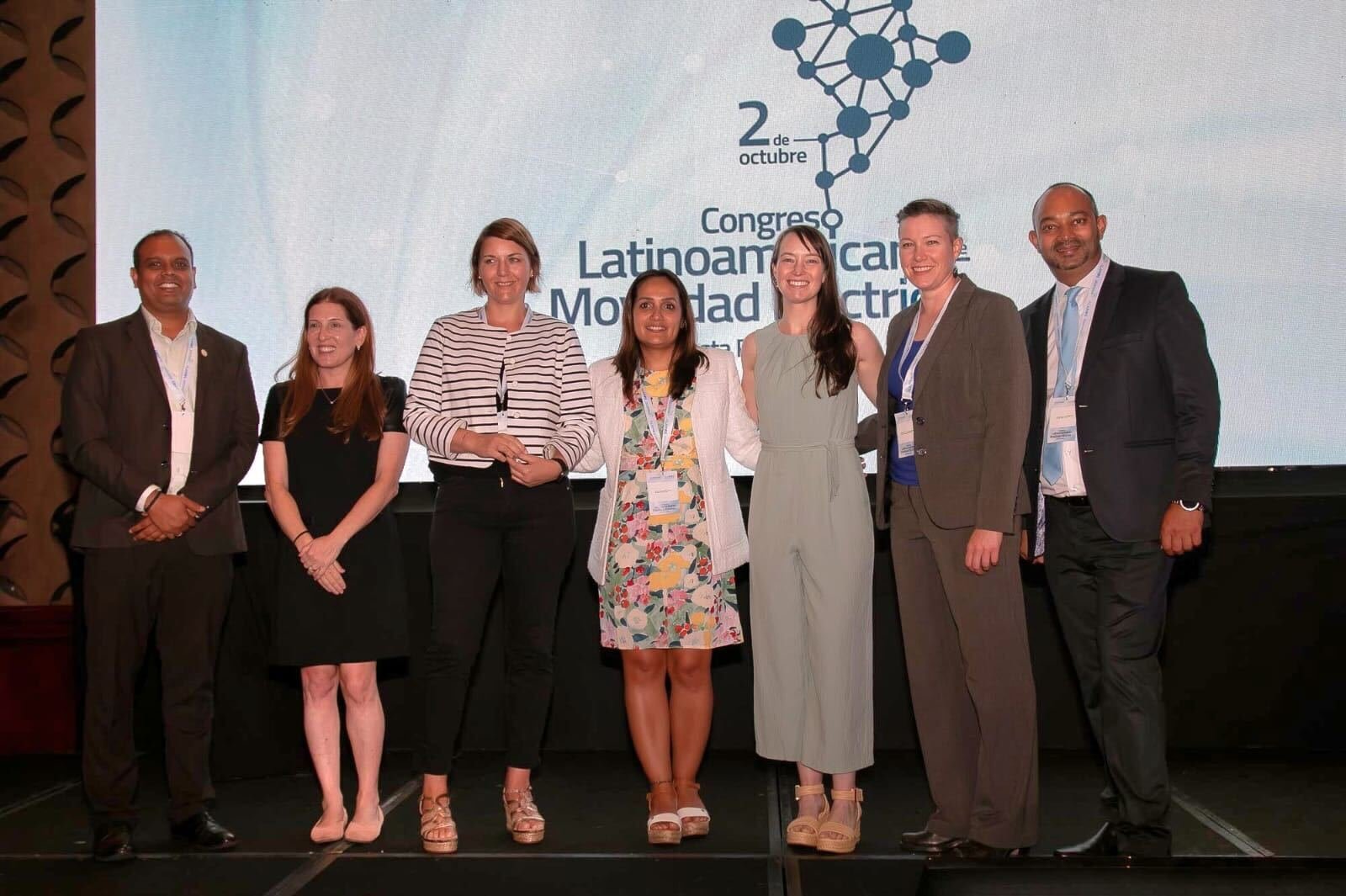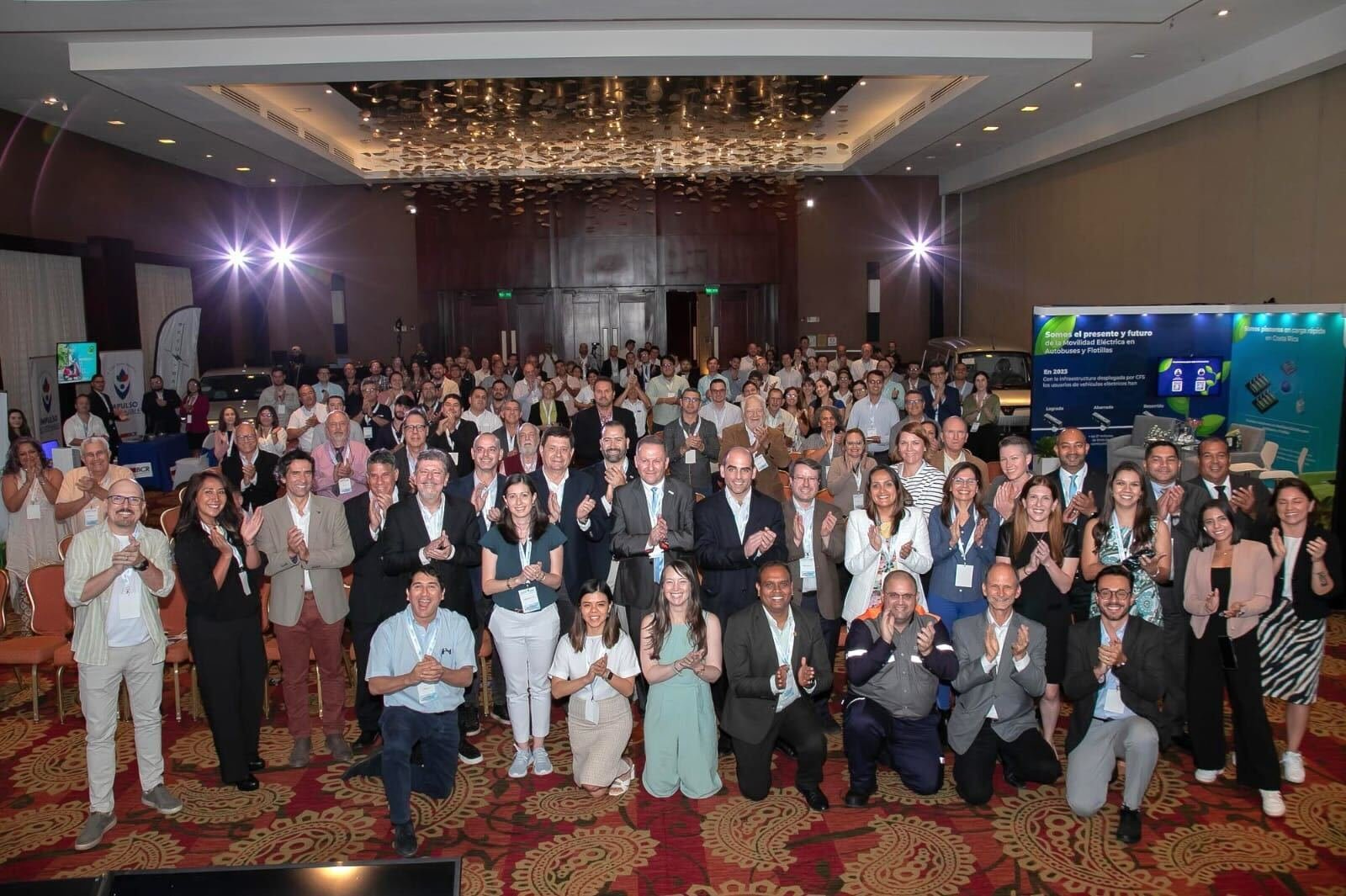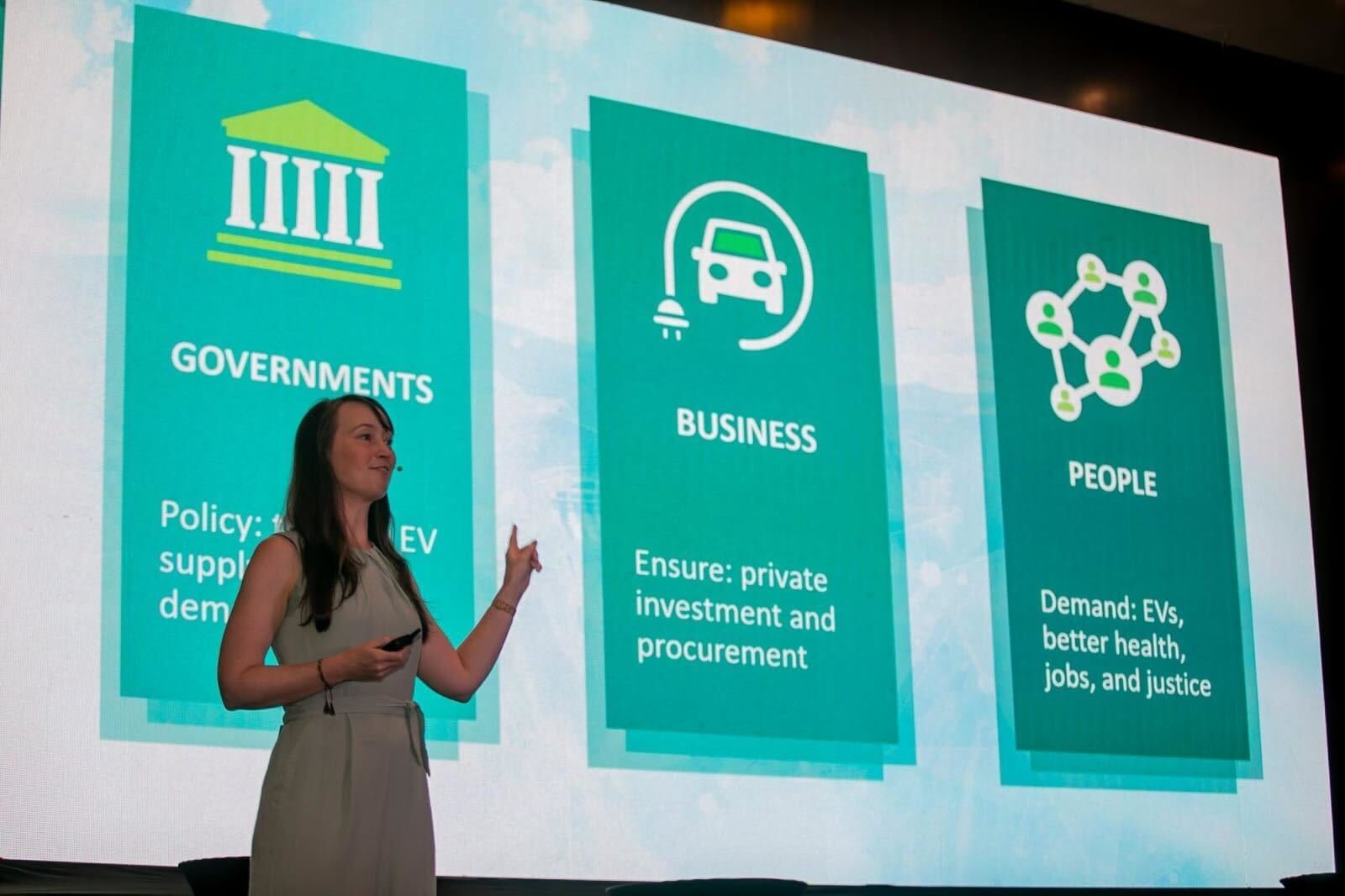Recap: 2023 Latin American EV Congress: A Catalyst for the Region's Electric Vehicle Revolution
The 2023 Latin America EV Congress was the region's leading event for electric vehicles and sustainable transportation. The event brought together EV industry stakeholders to discuss the latest trends and developments in the EV market, and to explore how to accelerate the adoption of EVs in Latin America. We’re happy to share that outgoing EVA Board Member Rebecca Fisher and EVA Member Steph Larsen were in attendance at this year’s event and shared their experience with us below!
The meeting focused on the state of the EV market in Latin America, government policies and incentives to support EV adoption, the future of EV adoption in Latin America, and how to overcome the challenges to EV adoption in the region. As Rebecca says, “the opportunities and challenges for the EV market in Latin America aren't all that different from what we continue to face here in the US.” Questions around charging, batteries, model availability, etc. were on the minds of participants. What was truly inspirational, however, was the clear commitment in EVs as the future and a key to increasing prosperity for the region.
While some may think Latin America is not ready or interested in the transition to EVs, they would be incredibly wrong! Countries and businesses in Latin America are already setting goals for EV sales, adopting cleaner emissions standards, and given their wealth of renewable power, easily shifting to domestically powered transportation systems. The truth is that some countries in Latin America are actually ahead of the US. One of the best examples is Costa Rica. Did you know that nearly 99% of the country’s electricity comes from renewable sources? Costa Rica leads the world in renewable energy, so it only makes sense that as of December 2022, 11% of vehicles entering the country were 100% electric. The US trails in adoption rate, landing at around 9% according to J.D. Power. Costa Rica has the highest EV sales rate in all of the Americas!
Many other countries hope to catch up with Costa Rica and have already started implementing smart government policies to encourage greater EV update and awareness. In 2021 Chile set an ambitious target that by 2035 100% of the sales of most vehicles be zero-emission, and by 2045 for heavy-duty trucks and intercity buses. This is supported by an innovative tax incentive for EV infrastructure and vehicles themselves.
The shift to electricity is necessary for places like Mexico City, which is the most congested city on Earth and has many days a year with poor air quality. The Mexican government is establishing “Green Corridors” to help with incentivizing EV friendly areas and car alternatives. And across the region, C40 estimates that the number of e-buses will increase by over seven times in 32 Latin American cities by 2030, representing an investment opportunity of over US$11.3 billion.
Other countries are starting to take note. Several Chinese EV manufacturers across all modes have entered the market and are selling EVs in the region that continues to be ignored by incumbent US, Korean, Japanese, and European automakers. Investments have also taken the form of manufacturing facilities, pilot projects, and other corporate partnerships. It is clear that Latin America is gearing up to be a clean transportation leader.
“What most impressed me”, said EVA member Steph Larsen, “was the diversity of affordable vehicle models that I’d never seen in the US. I also appreciated the green license plates that Costa Ricans reserve for their EVs. It makes electric cars even easier to identify! The exchange of ideas was also great – each country faces different challenges and are at different stages of EV adoption, and representatives were helping each other troubleshoot.”
